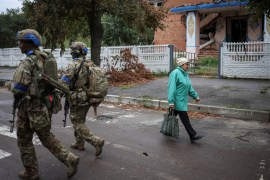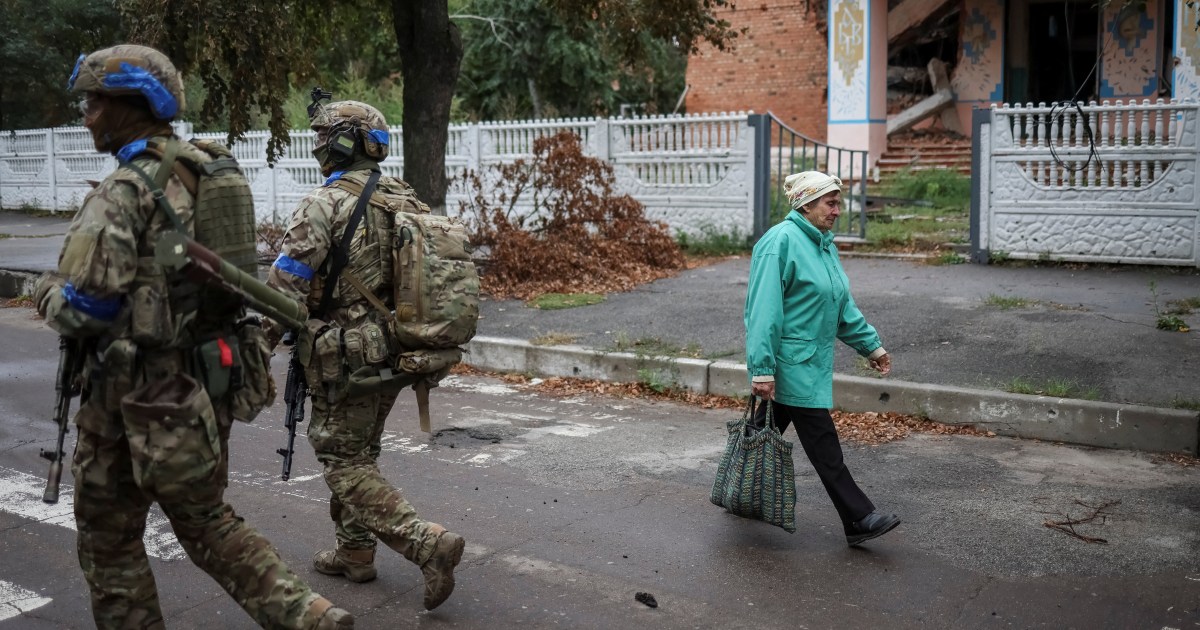
As Ukraine pushes against Russia on the military battlefield, the United States must revitalize its supporting efforts on the economic battlefield. The House-passed National Defense Authorization Act includes amendment #743, which would give the President one-time authorities to use assets (forfeited under criminal procedures) of sanctioned targets connected to Putin to help rebuild Ukraine. Similarly, the European Union can make strides toward this kind of lawful asset seizure. In July, EU Commissioner for Justice Didier Reynders told the press that he expected a political agreement to facilitate asset seizures would be finalized in the fall. The US, EU, UK, and allies must maintain momentum in their efforts to counter Russia—including closing gaps in the sanctions regime.
The need arises because in the short term, there have been some areas of Russian economic resilience. Putin has responded to economic countermeasures so far with “dramatic fiscal and monetary intervention to smooth over these structural economic weaknesses.” Therefore, the sanctions that once tanked the Russian ruble to about 139 to the USD are appearing less effective in the near term than many hoped. In June, the Russian ruble hit about 52 to the dollar, “its strongest level since May 2015,” although it has slightly weakened to approximately 60 to the dollar. The EU’s historic sanctions package on Russian oil has yet to materially cut revenue for the Kremlin. Reasons include the package’s “wind down period,” as well as large carve-outs for oil delivered by pipelines. In addition, the unprecedentedly high prices for oil, as well as India and China’s willingness to “snap up Russian crude at discounts,” have given Russia large foreign exchange account surpluses.
In the long-term, the effects of sanctions, export controls designed to freeze Russian tech, and the ostracization of Russia by many states will have devastating effects—if the US and allies remain committed to applying pressure.
The newest edition of the Brookings Sanctions Tracker shows how more can be done to leverage and strengthen the existing and forthcoming framework for economic countermeasures. The tracker shows that the US and its allies have imposed targeted financial sanctions on more than 3,000 individuals and entities in response to Russian aggression since 2014. But not all are equally effective.
The tracker illustrates large gaps across jurisdictions. For instance, the United States has yet to target 37 high-ranking Belarusian defense officials and 82 Russian Duma Members with asset freezes and travel bans, whereas many allies have. Filling gaps like these is an important step in closing back doors to sanction evasion and conducting lawful national asset seizures.
To take another example, individuals and companies at risk of being sanctioned often hide behind aliases or transfer their assets to subsidiaries such as their spouses, children, or daughter companies. Unless jurisdictions coordinate at the technical level, which includes sanctioning subsidiaries and listing all known aliases, individuals’ and companies’ ill-gotten gains can remain mobile. Looking at the tracker, you see that the United States has invested ample effort to target and publish information on known subsidiaries, while many other jurisdictions have not.
In addition, multilateral sanctions can increase pressure on targets due to relevant geopolitical and business interests. For example, countries, private entities, and individuals may be especially hesitant to engage with the targets of sanctions when imposed by their closest allies. Regulatory factors also come into play, as we’ve seen with multinational corporations that have chosen to voluntarily distance themselves from Russian-linked trades.
In late June, the US took a step in closing a major gap by imposing an asset freeze on Rostec, whose assets the UK, Australia, Canada, and New Zealand had already frozen.[1] Rostec is “the cornerstone of Russia’s defense, industrial, technology, and manufacturing sectors.” Closing in on Rostec’s subsidiaries, which are involved in various industries, including ratio-electronics, optical and laser systems, and asset management, weakens Russia’s ability to “develop and deploy weapons and technology” used for the war in Ukraine. Though the US government took longer than other jurisdictions to target Rostec, they have sanctioned more subsidiaries than others. Other jurisdictions must follow suit and sanction all possible subsidiaries.
Economic countermeasures take time, especially when targeting such a large economy like Russia. Putin has made it clear that he is committed for the long run, and he shows no signs of slowing down or shifting resources. To counter Putin, the United States and allies must do the same. Yet they are already showing some signs of fatigue. Votes to approve aid packages in the US have been growing more partisan. Only 10 House Republicans opposed the new Lend-Lease Act in April, while 57 voted against the aid bill in May. Additionally, a poll taken in that month shows the majority of Americans no longer support “sanctioning Russia as effectively as possible, even if it damages the US economy.”
It is imperative that the US and its allies continue sending military and financial aid to Ukraine and providing military training. Political unity that is strong today can dwindle tomorrow. Therefore, it is crucial we make use of what we have and do so quickly. The Brookings Sanctions Tracker offers the ability to analyze gaps in the global sanctions regime and opportunities for greater coordination to close them.
Footnotes
- The EU has imposed sanctions against Rostec under Annex XIX, which prohibits directly or indirectly engaging in any transaction with listed entities or individuals. The EU has yet to impose an asset freeze against Rostec. (Back to top)


